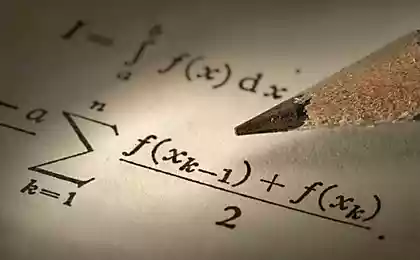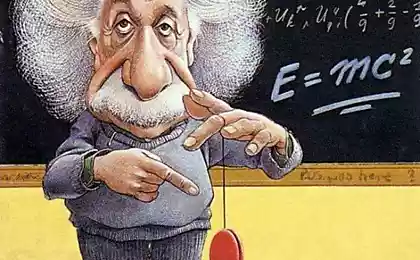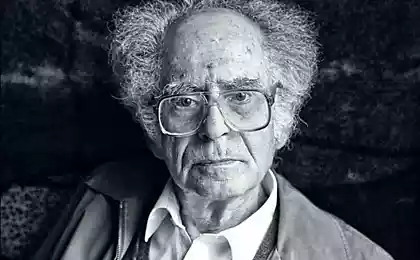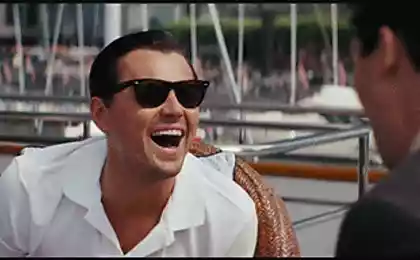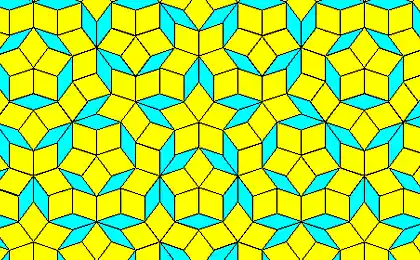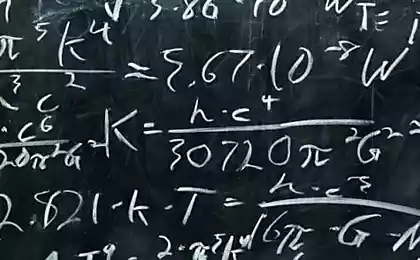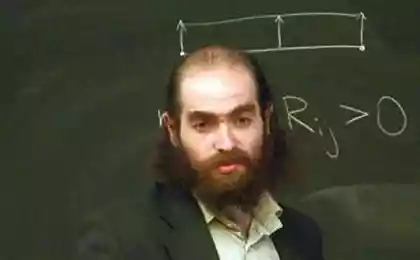165
Why the great mathematician Grigory Perelman refused the prize of $ 1,000,000
He was born in Leningrad, dreamed of studying music, but graduated from the university. At the age of 36, he proved the Poincaré theorem, over which the best minds of mankind have been struggling unsuccessfully since 1904. The British newspaper The Daily Telegraph included him in the list of hundred living geniuses under the ninth number. The hero of our article is “the last romantic of science” and the ideal scientist Perelman Grigory Yakovlevich.
View this post on Instagram
Posted by CREATOR (@centr_inform)
Perelman Grigory Yakovlevich Grigory was born on June 13, 1966 in the family of an electrician and a teacher. Note that contrary to popular misconception, the famous popularizer of science Yakov Isidorovich Perelman is not only not the father of Grigory Yakovlevich, but not even his relative.
View this post on Instagram
Posted by deyurik (@deyurik)
In 1993, his father emigrated to Israel. The mother had to raise two children alone. Until the 9th grade, the prodigy studied at an ordinary school on the outskirts of the city. And it is unknown how the fate of Perelman would have developed further, if the teachers from the mathematical center for gifted children had not been interested in him.
Russian mathematician Grigory Perelman. The Mathematical Genius Who Rejected the $1 Million Dollar Prize pic.twitter.com/E9XYsKrNK0
— akot55 (@volgog55) January 5, 2017
Then there were victories at international mathematical Olympiads, the transition to the legendary Physics School No. 239, Matmeh LSU and prestigious work in the United States. The talented mathematician was invited by the most prestigious world universities. But he decided to go home. For some time he worked at the V. A. Steklov Mathematical Institute. And then suddenly announced that he was leaving and quitting mathematics altogether.
"Theorem of the Century." Science Perelman, of course, did not give up. He used his free time to focus on the biggest and most ambitious problem in the history of mathematics. But let's not get ahead of ourselves, let's go back to 1900.
View this post on Instagram
Posted by Klee Irwin (@kleeirwin)
In the last year of the XIX century, the French mathematician Henri Poincaré put forward a bold hypothesis named after him. Translated into a publicly available language, its meaning boils down to the fact that any three-dimensional object can be converted into a ball by deformation without cutting and gluing.
1957-1872
The significance of this theory is due to the fact that without it it it is impossible to truly understand the foundations of the universe. Therefore, the specialists of the Clay Mathematical Institute included it in the list of priority mathematical problems of the millennium. We add that for the solution of each of them was promised a reward of $ 1 million.
What would an ordinary man do when he made the discovery of the century? Most likely, he will try to keep everything secret until he is securely assigned authorship. But that's not our hero. In 2002, Perelman posted 39 pages of proof of Poincaré’s theorem on arXiv.
View this post on Instagram
Posted by @human_analys
“If everyone is honest, then the exchange of ideas is a completely natural phenomenon,” Gregory later explained. I thought that if someone had made a mistake somewhere and someone else could offer correct proof based on my results, I would be happy.
Leading world mathematicians immediately rushed to look for errors in the work of the Petersburger, but in vain. Four years of testing by experts confirmed that Grigory Perelman really proved the hypothesis over which the best minds of mankind fought for a hundred years.
The truth was not without annoying excesses. After all, romantics from science are rare today, and not all scientists are so indifferent to fame and honors as Perelman. Heading one of the groups that tested Perelman’s proof, the Chinese mathematician Yau Shintung tried to attribute some of the merits of solving the “theorem of the century” to himself and his students.
View this post on Instagram
Publication by Anton Yurievich Mathematics (@matemrepetitor)
Gregory reacted to this with irony: I cannot say that I am outraged by his (Yau Shintun) behavior. There are people who are doing much worse.” The point in this story was set by the Clay Institute. By awarding Grigory Perelman the Millennium Prize, the Russian mathematician was officially recognized as the author of the proof of the Poincaré hypothesis.
For his historical discovery, Perelman was presented to the Fields Medal, a Nobel prize. In addition, the Cambridge Clay Mathematical Institute awarded the Russian mathematician a million US dollars prize.
Gregory refused to accept the award. “In short, the main reason is disagreement with the organized mathematical community. I do not like their decisions, I consider them unfair, the scientist said.
Perelman today Grigory Perelman’s refusal of prizes and monetary remuneration caused a wide public outcry. The mathematician received numerous offers to share money. Journalists besieged the apartment for days, and millions of people puzzled over the reason for such an unusual act.
View this post on Instagram
Posted by Your Grandfather (@tv0yded)
“I know how to govern the universe. So why should I run after a million? said Perelman calmly to the curious, adding that he had everything necessary for life. Today, the famous scientist lives in a small apartment on the outskirts of St. Petersburg with his mother Lyubov Leibovna.
View this post on Instagram
Posted by Elena (@knigogid36)
Neighbors said Perelman does not accept guests, wears crumpled old clothes and buys only the simplest products. Many people find it, to put it mildly, strange. And others believe that in the table of a humble genius already lie piles of written paper, promising us the solution to the mysteries of the universe.
View this post on Instagram
Posted by CREATOR (@centr_inform)
Perelman Grigory Yakovlevich Grigory was born on June 13, 1966 in the family of an electrician and a teacher. Note that contrary to popular misconception, the famous popularizer of science Yakov Isidorovich Perelman is not only not the father of Grigory Yakovlevich, but not even his relative.
View this post on Instagram
Posted by deyurik (@deyurik)
In 1993, his father emigrated to Israel. The mother had to raise two children alone. Until the 9th grade, the prodigy studied at an ordinary school on the outskirts of the city. And it is unknown how the fate of Perelman would have developed further, if the teachers from the mathematical center for gifted children had not been interested in him.
Russian mathematician Grigory Perelman. The Mathematical Genius Who Rejected the $1 Million Dollar Prize pic.twitter.com/E9XYsKrNK0
— akot55 (@volgog55) January 5, 2017
Then there were victories at international mathematical Olympiads, the transition to the legendary Physics School No. 239, Matmeh LSU and prestigious work in the United States. The talented mathematician was invited by the most prestigious world universities. But he decided to go home. For some time he worked at the V. A. Steklov Mathematical Institute. And then suddenly announced that he was leaving and quitting mathematics altogether.
"Theorem of the Century." Science Perelman, of course, did not give up. He used his free time to focus on the biggest and most ambitious problem in the history of mathematics. But let's not get ahead of ourselves, let's go back to 1900.
View this post on Instagram
Posted by Klee Irwin (@kleeirwin)
In the last year of the XIX century, the French mathematician Henri Poincaré put forward a bold hypothesis named after him. Translated into a publicly available language, its meaning boils down to the fact that any three-dimensional object can be converted into a ball by deformation without cutting and gluing.
1957-1872
The significance of this theory is due to the fact that without it it it is impossible to truly understand the foundations of the universe. Therefore, the specialists of the Clay Mathematical Institute included it in the list of priority mathematical problems of the millennium. We add that for the solution of each of them was promised a reward of $ 1 million.
What would an ordinary man do when he made the discovery of the century? Most likely, he will try to keep everything secret until he is securely assigned authorship. But that's not our hero. In 2002, Perelman posted 39 pages of proof of Poincaré’s theorem on arXiv.
View this post on Instagram
Posted by @human_analys
“If everyone is honest, then the exchange of ideas is a completely natural phenomenon,” Gregory later explained. I thought that if someone had made a mistake somewhere and someone else could offer correct proof based on my results, I would be happy.
Leading world mathematicians immediately rushed to look for errors in the work of the Petersburger, but in vain. Four years of testing by experts confirmed that Grigory Perelman really proved the hypothesis over which the best minds of mankind fought for a hundred years.
The truth was not without annoying excesses. After all, romantics from science are rare today, and not all scientists are so indifferent to fame and honors as Perelman. Heading one of the groups that tested Perelman’s proof, the Chinese mathematician Yau Shintung tried to attribute some of the merits of solving the “theorem of the century” to himself and his students.
View this post on Instagram
Publication by Anton Yurievich Mathematics (@matemrepetitor)
Gregory reacted to this with irony: I cannot say that I am outraged by his (Yau Shintun) behavior. There are people who are doing much worse.” The point in this story was set by the Clay Institute. By awarding Grigory Perelman the Millennium Prize, the Russian mathematician was officially recognized as the author of the proof of the Poincaré hypothesis.
For his historical discovery, Perelman was presented to the Fields Medal, a Nobel prize. In addition, the Cambridge Clay Mathematical Institute awarded the Russian mathematician a million US dollars prize.
Gregory refused to accept the award. “In short, the main reason is disagreement with the organized mathematical community. I do not like their decisions, I consider them unfair, the scientist said.
Perelman today Grigory Perelman’s refusal of prizes and monetary remuneration caused a wide public outcry. The mathematician received numerous offers to share money. Journalists besieged the apartment for days, and millions of people puzzled over the reason for such an unusual act.
View this post on Instagram
Posted by Your Grandfather (@tv0yded)
“I know how to govern the universe. So why should I run after a million? said Perelman calmly to the curious, adding that he had everything necessary for life. Today, the famous scientist lives in a small apartment on the outskirts of St. Petersburg with his mother Lyubov Leibovna.
View this post on Instagram
Posted by Elena (@knigogid36)
Neighbors said Perelman does not accept guests, wears crumpled old clothes and buys only the simplest products. Many people find it, to put it mildly, strange. And others believe that in the table of a humble genius already lie piles of written paper, promising us the solution to the mysteries of the universe.
A stranger asked why such a beauty wanders alone down the street on New Year’s Eve, but we are in Paris, everything is possible here.
Why men do not hold on to good women and leave them without regret



